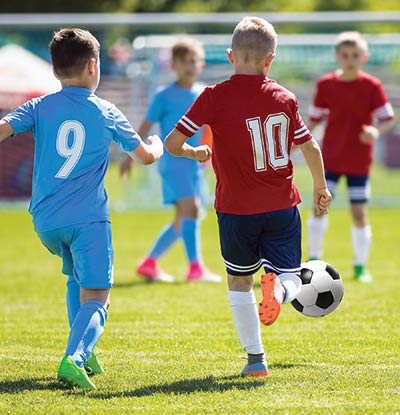
Back-to-school schedules come with so many choices for after-school activities that it can be overwhelming for the entire family. Here are some tips on best practices at different grade levels from those who know our children well.
ELEMENTARY SCHOOL, BALANCED
“Establish a homework routine that works for you and your child.” That’s the first piece of advice Kristin Haile, school counselor for Mount Pleasant Academy offered.
“Everyone is different. Some children want to finish homework as soon as they can. Others prefer free time first. The important part is to create a routine and stick to it as much as possible.”
 Haile recommended finding a homework-friendly environment, near an adult, away from distractions. She cautioned parents: “Teach, don’t tell. Resist the temptation to give them the answers. Foster independence and use these early years to teach them how to study and develop time-management skills and organization.”
Haile recommended finding a homework-friendly environment, near an adult, away from distractions. She cautioned parents: “Teach, don’t tell. Resist the temptation to give them the answers. Foster independence and use these early years to teach them how to study and develop time-management skills and organization.”
A mother herself, Haile understands the rush of afters-chool activities. “My neighbor once said: ‘Just wait until they begin sports’ and boy, was she right!” Haile stressed that developing interests in the arts, sports or organizations like the Scouts has many advantages. “So many life lessons can be learned like teamwork, goal setting and commitment that help develop our children into well-rounded people.”
The trick is to not over commit. “I fell victim to my desire to expose my children to many things,” she admitted. “But I soon realized my children were craving unstructured time at home as much as I was.” She encouraged families to have an open dialogue. “Which activities do you want to do more of? What would you like to try, and which do you prefer to stop doing? Asking open-ended questions can hopefully allow children to give honest answers without feeling parental pressure.”
TACKLING MIDDLE SCHOOL
Scott Trottier is the eighth-grade counselor for Thomas C. Cario Middle School. He is a big proponent of an after-school schedule that “helps children be more independent, efficient and organized.” Like Haile, he stressed finding a designated, distraction-free place and time to do homework. With middle school comes the cell phone. “Kids do not typically need their phones to do their homework. They might act like they are working, but, trust me, they are texting and on Snapchat.”
Trottier highly recommended parents hold their children accountable for using the planner they were given at the beginning of the school year. “Without mine, I would be a mess. Students need to use them, and parents need to check them. Don’t let them leave things blank. If there is no homework for a class, they should write that or simply ‘none.’”
He believes children can benefit from activities outside of school. “This is especially important for kids who struggle to make friends,” he noted.
He also pointed out jam-packed schedules have adverse effects. “It leaves kids with little time to keep up with their schoolwork and still decompress.” He emphasized looking for the signs such as “grades taking a dip or if parents themselves are exhausted from the daily grind of carting their children around.” Downtime is important and essential for a healthy family environment.
HANDLING HIGH SCHOOL
“Students frequently tell us they do better during their busy sports or activity season because they have to schedule their time more effectively,” said Laura Carroll, school counseling director for Wando High School. “The beauty of a calendar for a high school student that incorporates academics including test dates, extracurricular activities/work and even downtime is that it shows you and your child at a glance if they are ‘overscheduled.’”
Carroll supports a balanced after-school schedule. “Getting your high school student involved in clubs, sports, volunteering or even work is great for resume building. However, adding too many activities is counterproductive if it impacts grades and/or causes stress.”
Carroll invited parents to monitor the amount of time students spend on their various activities and to overall “find a personalized balance — because what works for your neighbor’s child might not work for yours.”
By Pamela Jouan

Leave a Reply